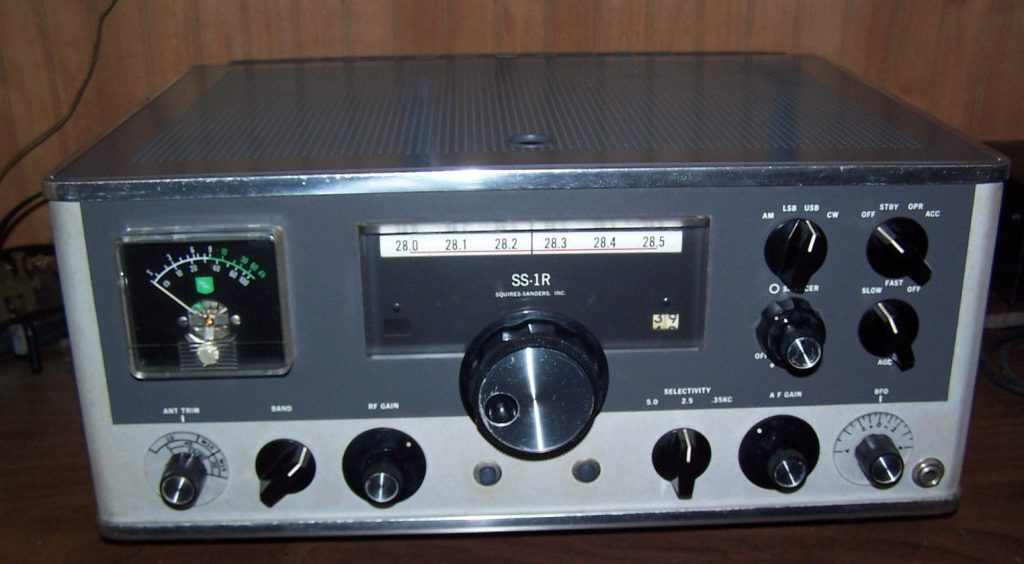
Many thanks to SWLing Post contributor, Michael Black, who reminds us why the Squires Sanders SS-1R receiver (Dan recently spotted on eBay) was so innovative at the time:
It’s legendary because it leaped forward in receiver design, at least at the amateur level, and there was the article in QST in 1963 by Squires about the design. So lots of people knew about the design, even if they weren’t owners.
There’s no RF amplifier, the antenna feeds the mixer trough a tuned circuit. There’s a q-multiplier on that tuned circuit, to improve selectivity (q-multipliers were mostly seen in 455KHz IFs). The mixer was a 7360 beam deflection tube, hard to overload, and a balanced mixer, which was likely a first in ham receivers. After, everyone was using 7360s for receiver mixers, at least until good solid state balanced mixers came along.
I keep forgetting that it is still a dual conversion receiver (except for one band), though presumably to avoid other issues while allowing for a fixed 500KHz tuning range.
But the second IF is at 1 or 2 MHz, higher than the usual 455KHz, a sign of the future, though there were already some SSB transceivers with IFs in the HF range.
It does seem a relatively simple design now, but wasn’t fifty years ago.
The ham band version was the “big seller”, the shortwave version maybe offered because they could. It’s not clear if the front end needed changes to cover the SW broadcast bands. But it would have been an expensive SW receiver, and needing another crystal for each 500KHz tuning segment, a new concept at the time (though a few years later Drake had their SW receivers like that). But that was the trade-off, most receivers did have a 2:1 tuning range, while some were like the R390 , very complicated mechanically and crystals for every band. A subset of 3 to 30MHz meant fewer crystals and a simpler bandswitch but you spent a lot of money for a receiver that wasn’t “general coverage”.
Michael
Thank you, Michael, for the insight! At last glance, the bidding was only at $227.50. I suspect it will go much higher, but perhaps this will end up being a deal for someone.

I have a sanders and squire odors 23 channel cb left by my husband. .purchased in 1969
Doesn’t have any value
If you go to AmericanRadioHistory.com and do a search of this model you’ll find snippets of information. Squires Sanders produced CB radios too.